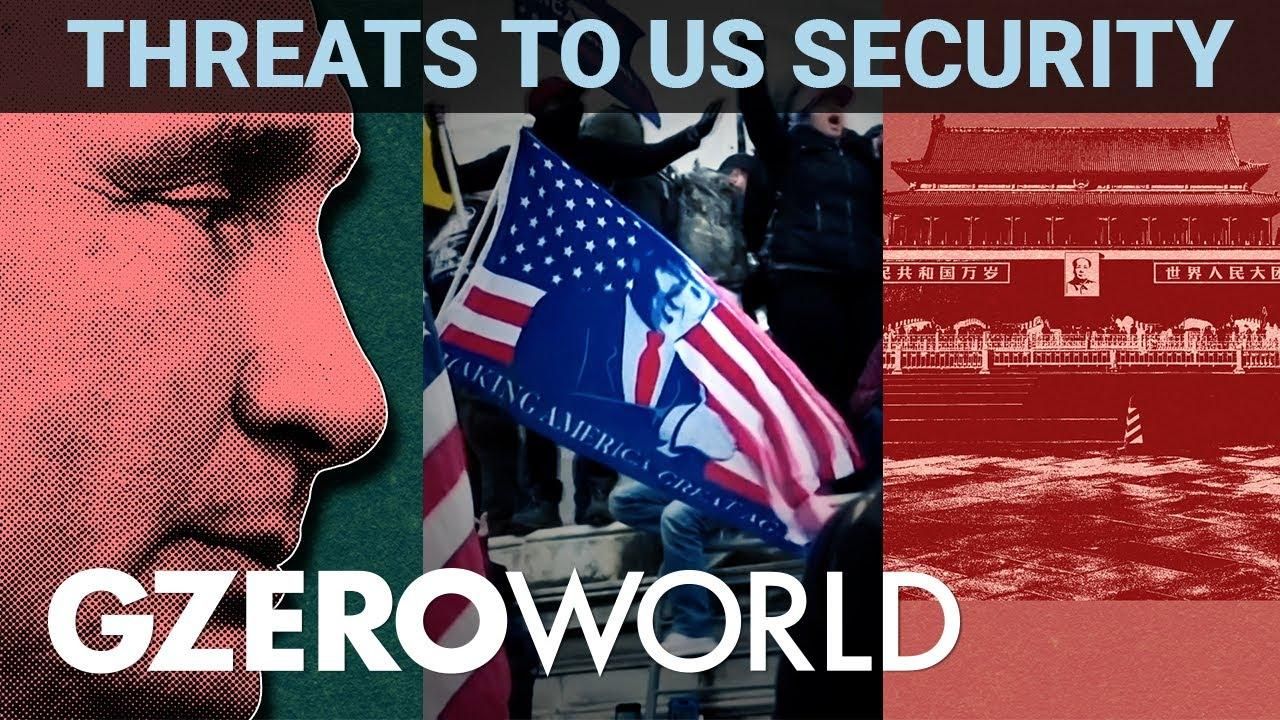GZERO World with Ian Bremmer
US threat levels from foreign and domestic enemies

US Threat Levels from Foreign & Domestic Enemies | GZERO World with Ian Bremmer

The Biden administration finally released its long-anticipated National Security Strategy, basically America's biggest threats — foreign and domestic.
The No. 1 external enemy is not Russia but rather China. It also emphasizes the homegrown threat of Americans willing to engage in political violence if their candidate loses at the ballot box.
On GZERO World, Ian Bremmer speaks to David Sanger, who knows a thing or two about national security because it's his beat at the New York Times.
His take on China? Taiwan's status as a semiconductor superpower may be staving off a Chinese invasion.
On Russia, Sanger discusses how Kyiv and the world face the paradox that the better Ukraine gets at resisting Russia, the more likely it is that Vladimir Putin will consider launching a tactical nuke. “If the Russians use a tactical nuclear weapon in a conventional war and essentially get away with … then all of a sudden, the taboo about using nuclear weapons in a conventional conflict is gone,” he says.
Meanwhile, America should not lose sight of the "insider threat" to its democracy, particularly with midterms just days away.
Xi Jinping has spent three years gutting his own military leadership. Five of the seven members of the Central Military Commission – China's supreme military authority – have been purged since 2023, all of whom were handpicked by Xi himself back in 2022.
In this episode of GZERO Europe, Carl Bildt examines how an eventful week in Davos further strained transatlantic relations and reignited tensions over Greenland.
In this episode of "ask ian," Ian Bremmer breaks down the growing rift between the US and Canada, calling it “permanent damage” to one of the world’s closest alliances.
For China, hitting its annual growth target is as much a political victory as an economic one. It is proof that Beijing can weather slowing global demand, a slumping housing sector, and mounting pressure from Washington.